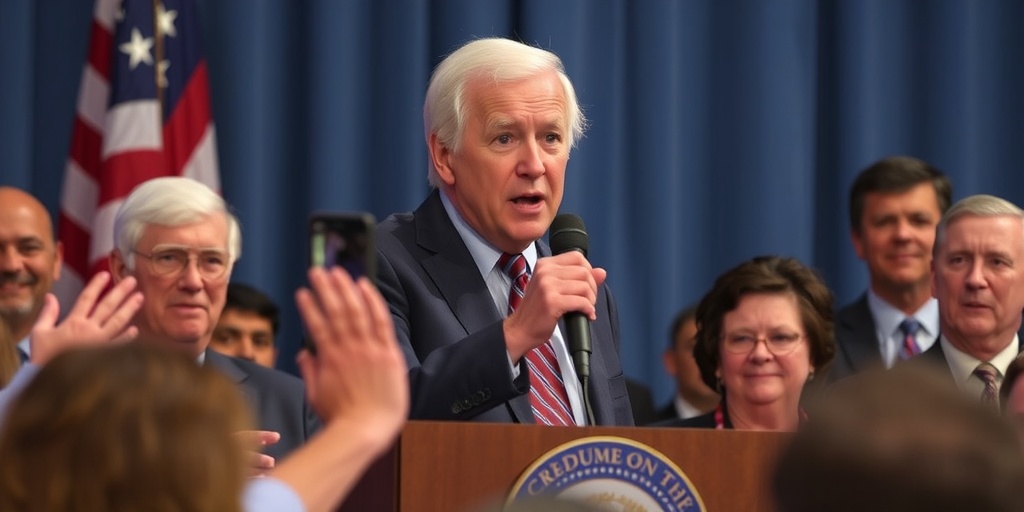Now Reading: U.S. Calls Maryland Man’s Deportation an ‘Administrative Error’
-
01
U.S. Calls Maryland Man’s Deportation an ‘Administrative Error’
U.S. Calls Maryland Man’s Deportation an ‘Administrative Error’

Maryland Man Deported to El Salvador Due to Administrative Error
In a contentious episode reflecting the complexities of U.S. immigration policy, a Maryland resident, Kilmar Armando Abrego Garcia, was deported to El Salvador and subsequently imprisoned, all due to what has been termed an “administrative error” by officials from the Trump administration. This incident underscores ongoing disputes over deportation procedures and the implications for individuals seeking safety and stability in the United States.
Mr. Abrego Garcia has been living legally in the United States since October 2019 under a status known as “withholding from removal.” This designation is granted to individuals who face significant risk of harm should they return to their home countries. Mr. Abrego Garcia’s family, including his wife and five-year-old child, are U.S. citizens, further complicating the emotional and legal ramifications of his deportation.
The troubles began on March 12, when Mr. Abrego Garcia was detained by immigration agents who erroneously informed him that his legal status had changed. Despite holding a valid legal status that protected him from deportation, he was placed on a deportation flight just three days later. Following the agent’s misinformation, he was sent back to El Salvador, where he currently finds himself in a notorious facility known as the Terrorism Confinement Center (CECOT), a mega-prison infamous for its harsh conditions.
The response from Trump administration officials has been to dismiss the request for judicial intervention regarding Mr. Abrego Garcia’s situation, claiming that U.S. courts lack the authority to compel his release or rectify the situation given that he is no longer in the country. They have described the incident as an "administrative error" and have expressed their inability to reverse his deportation due to jurisdictional constraints.
The case of Mr. Abrego Garcia is emblematic of a broader struggle between immigration advocates and the White House over the treatment of migrants, particularly as the Trump administration has aggressively pursued deportations under both traditional laws and unconventional means. This includes the invocation of the Alien Enemies Act, a rarely utilized wartime statute being applied in the context of deporting migrants, including a number of Venezuelans accused of gang affiliations.
Mr. Abrego Garcia was among a group of individuals placed on a flight to El Salvador on March 15, which notably was intended to only transport those who had formal removal orders endorsed by a judge. However, complications arose as two other planes were authorized to operate under the Alien Enemies Act, leading to an uncoordinated and chaotic deportation process.
Legal representatives for Mr. Abrego Garcia are currently pursuing a civil action against the Trump administration. His wife and family have filed a lawsuit demanding that the U.S. government cease its financial support to El Salvador for the detention of deportees until Mr. Abrego Garcia is allowed to return to the United States. However, the administration has resisted this petition, arguing that the implications of such a legal demand would undermine U.S. diplomatic objectives.
Moreover, the Justice Department highlighted that this situation is not unique to Mr. Abrego Garcia. Challenges faced by other undocumented individuals—particularly Venezuelans whose accusations of gang affiliations have led to their own deportations—have brought to light systemic failures in the deportation process. The legal representatives for these individuals contend that their clients lack the ability to contest the claims against them, resulting in their unjust confinement.
While the U.S. administration has remained resolute in categorizing Mr. Abrego Garcia’s deportation as a procedural misstep, the potential for political and legal fallout from this episode looms large. Advocacy groups assert that such incidents necessitate a comprehensive review of U.S. immigration policies and raise pressing concerns regarding the safeguarding of individuals facing serious risks upon their return to their home countries.
As it stands, Mr. Abrego Garcia’s plight highlights the precarious nature of immigration status in the U.S. and the dire consequences that can arise from bureaucratic oversights. His case not only illustrates personal tragedy but also ignites a crucial dialogue about immigration reform and the protection of vulnerable populations within the United States. The outcome of this litigation could have far-reaching implications, not just for Mr. Abrego Garcia, but for countless others who find themselves navigating a convoluted and often hostile immigration system.
Stay Informed With the Latest & Most Important News
Previous Post
Next Post
-
 01New technology breakthrough has everyone talking right now
01New technology breakthrough has everyone talking right now -
 02Unbelievable life hack everyone needs to try today
02Unbelievable life hack everyone needs to try today -
 03Fascinating discovery found buried deep beneath the ocean
03Fascinating discovery found buried deep beneath the ocean -
 04Man invents genius device that solves everyday problems
04Man invents genius device that solves everyday problems -
 05Shocking discovery that changes what we know forever
05Shocking discovery that changes what we know forever -
 06Internet goes wild over celebrity’s unexpected fashion choice
06Internet goes wild over celebrity’s unexpected fashion choice -
 07Rare animal sighting stuns scientists and wildlife lovers
07Rare animal sighting stuns scientists and wildlife lovers




















